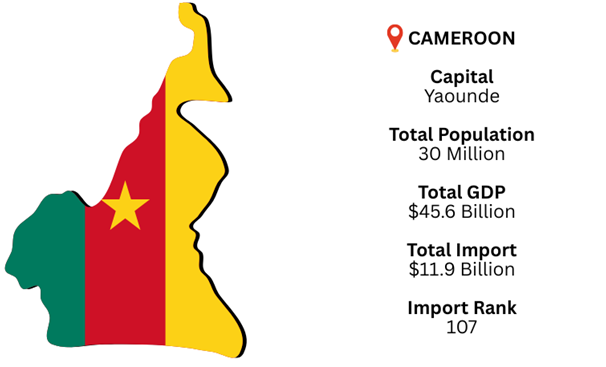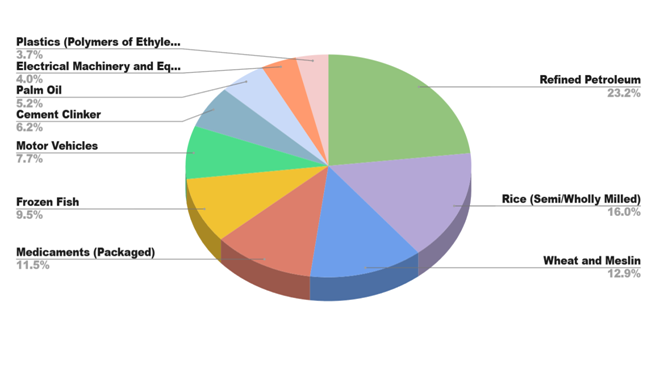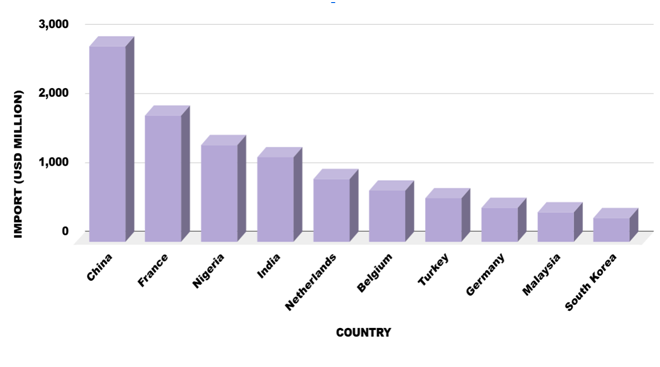Cameroon is a Central African country strategically located along the Atlantic coast, sharing borders with Nigeria, Chad, the Central African Republic, Equatorial Guinea, Gabon, and the Republic of the Congo. The nation's economic and administrative capital is Yaoundé, while Douala serves as its major port and commercial hub. As of 2024, Cameroon’s GDP is projected to be around USD 45.6 billion. As per Cameroon import data, Cameroon is ranked 107th in the global import rankings. According to recent trade statistics, China is the top exporter to Cameroon. The total value of imports into Cameroon in 2024 is expected to reach approximately USD 11.9 billion. Among all imported items, refined petroleum remains the most imported product.
Due to its advantageous coastal position, diverse economy, and involvement in trade agreements throughout Central and West Africa, Cameroon is becoming a more significant player in regional commerce despite its infrastructural and governance issues. In recent years, as per Cameroon customs data, Cameroon's import capacity and international alliances have been strengthened by increased investments in energy, construction, and logistics.



